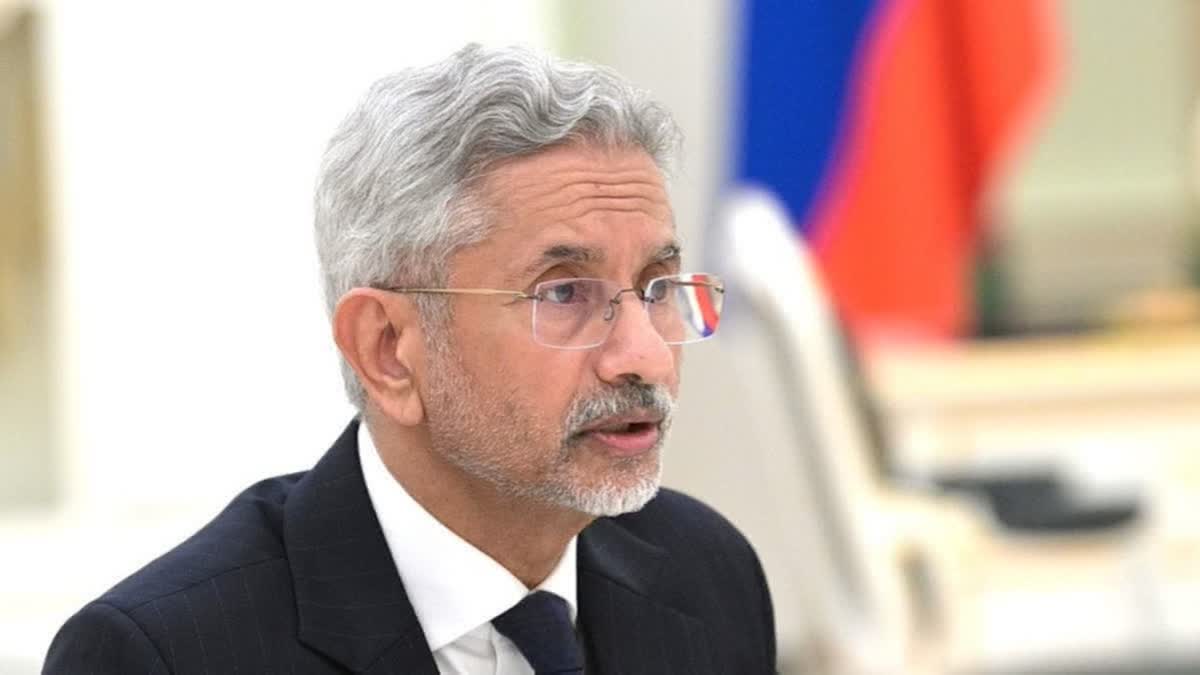New Delhi: External Affairs Minister Dr Jaishankar on Wednesday, lauded his Chilean counterpart for his support for India's permanent membership in the Expanded Security Council.
In his opening remarks at the India-Chile Joint Commission meeting, EAM Jaishankar said, "It's a great pleasure to have you all here for the meeting of the second India-Chile Joint Commission meeting. The first one we did quite a few years ago, and that was during the COVID time it was virtually. So I'm happy that we have an opportunity to meet in person".
Jaishankar highlighted Chile's active participation at the Voice of Global South Summit and said, "And as I welcome you, let me also say we very much value the participation of Chile in the Voice of Global South Summit. We heard from your President. He gave a very, very insightful set of remarks at the Summit in August. And we also thank you very much for supporting our permanent membership in the Expanded Security Council. Your participation in the Trade and Economic Ministers meeting in November 2023 is also something we appreciate very deeply".
Foreign Minister Klaveren arrived in New Delhi on Tuesday for an official visit aimed at enhancing bilateral cooperation. Following the Joint Commission meeting, he is scheduled to participate in the Chile-India Business (Agriculture) Summit before departing for Mumbai.
The Ministry of External Affairs (MEA) previously described Chile as a "key partner of India in the Latin American region," emphasizing that the visit would provide an opportunity to review and expand bilateral relations.
India, along with countries like Japan, Germany, and Brazil (collectively known as the G4), has been advocating for the expansion of the UNSC's permanent membership to include them, reflecting their significant contributions to international peace and security, as well as their economic and political influence.
Chile's backing adds to the growing list of nations that recognize India's role on the global stage and the need for a more inclusive UNSC that better reflects the realities of the 21st century. This support is important for India as it continues to build momentum and gather international consensus for its bid.
India and Chile share a relationship marked by strong diplomatic ties, economic cooperation, and growing cultural exchange. Diplomatic relations between India and Chile were established in 1949. Since then, both countries have maintained a friendly relationship, marked by mutual respect and cooperation.
There have been several high-level visits between the two countries, which have helped to strengthen ties. For instance, the President of Chile, Michelle Bachelet, visited India in 2009 and 2017. Indian leaders have also visited Chile, with Prime Minister Narendra Modi meeting with Chilean leadership on the sidelines of various international forums.
India and Chile signed a Preferential Trade Agreement (PTA) in 2006, which was expanded in 2016. The PTA allows both countries to enjoy reduced tariffs on a wide range of goods, boosting trade between them.
Bilateral trade has been growing steadily. India primarily exports vehicles, pharmaceuticals, and textiles to Chile, while Chile exports copper, minerals, and fruits to India. Copper is one of the key components of trade, as Chile is one of the largest producers of the metal. While investment flows between the two countries have been modest, there is potential for growth, especially in sectors like mining, energy, and information technology. Cultural exchanges between India and Chile have been facilitated by various programs and initiatives.
The Indian Council for Cultural Relations (ICCR) has played a key role in promoting Indian culture in Chile through festivals, performances, and academic exchanges. Interest in Indian culture, particularly in yoga and Ayurveda, has been growing in Chile. Yoga classes and Ayurvedic practices have gained popularity among Chileans, contributing to the cultural bond between the two countries. Chile has expressed support for India’s bid for permanent membership in the United Nations Security Council (UNSC), recognizing India's role as a key player in global affairs.
Both countries collaborate on climate change issues, particularly through international forums like the United Nations Framework Convention on Climate Change (UNFCCC). One of the challenges in India-Chile relations is the geographical distance, which can complicate logistics and trade. There is significant potential for expanding cooperation in areas such as renewable energy, technology, and education. Both countries can benefit from deeper engagement in these sectors. India and Chile continue to strengthen their partnership through diplomatic efforts, trade, and cultural exchanges, reflecting a shared commitment to enhancing their bilateral relationship.



